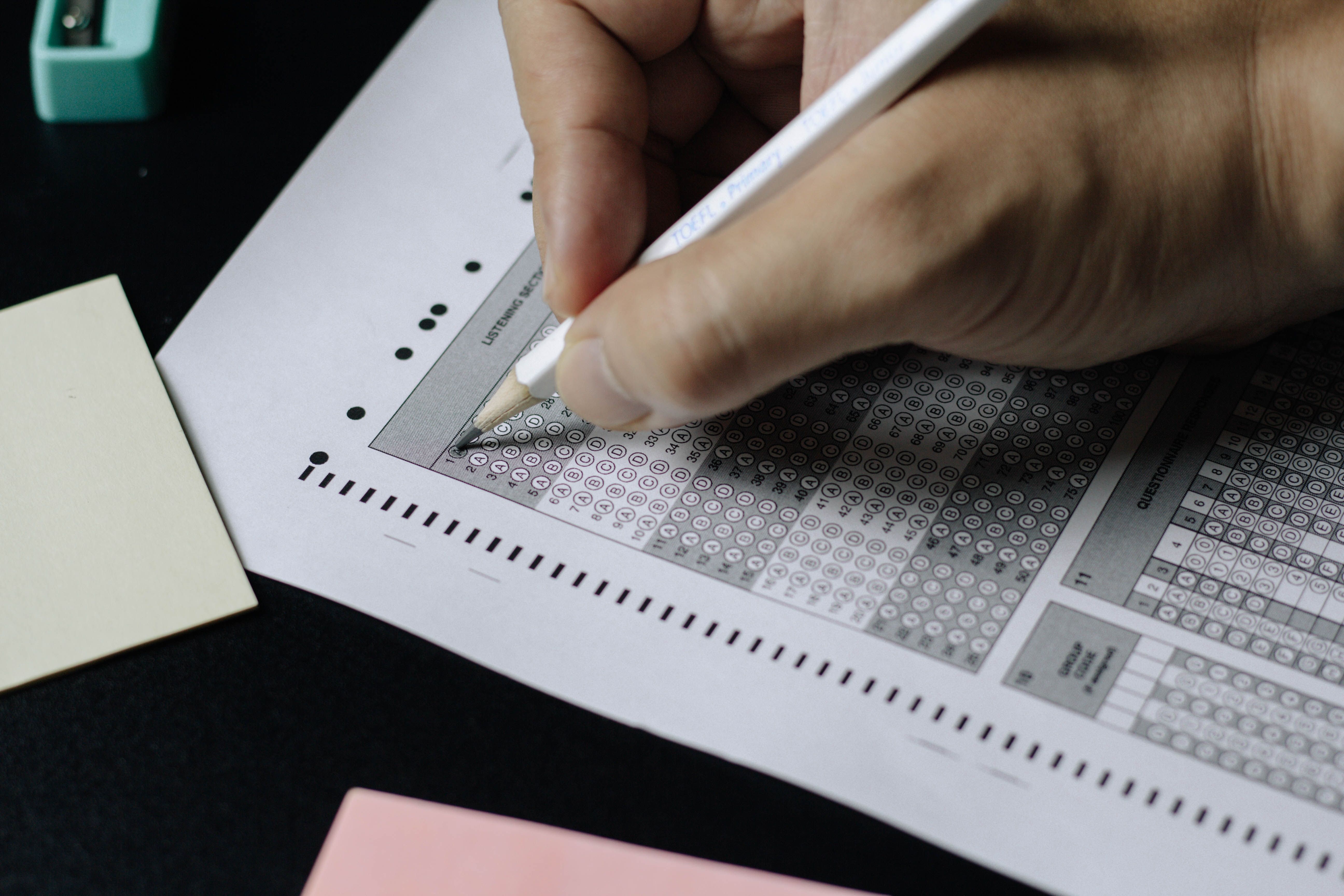
Cruise to a 5 on the AP English Language & Composition Exam
The AP English Language and Composition exam, offered each year in May by the College Board, test students ability to critically analyze texts and write cogent, evidence-based essays in which they present claims and arguments. The texts studied for AP Lang are non-fiction, whereas those for the AP Literature exam are fictional. AP Lang is rigorous and demanding, requiring both strong critical reading and essay-writing skills. In this article, we’ll tell you everything you need to know about the AP Lang exam, and the best tips and strategies for cruising to a 5!

What Is the AP English Language and Composition Exam?
The AP English Language and Composition exam, offered each year in May by the College Board, test students ability to critically analyze texts and write cogent, evidence-based essays in which they present claims and arguments. The texts studied for AP Lang are non-fiction, whereas those for the AP Literature exam are fictional. AP Lang is rigorous and demanding, requiring both strong critical reading and essay-writing skills. In this article, we’ll tell you everything you need to know about the AP Lang exam, and the best tips and strategies for cruising to a 5!
What does the AP English Language exam consist of?
The AP English Language and Composition exam consists of both a multiple-choice and free-response section.
On the multiple-choice section, there are 23–25 reading questions, for which students are asked respond to questions based on a passage, and 20–22 writing questions, for which students are asked to suggest changes to a passage.
There are 3 Free Response question, one focusing on Synthesis, one on Rhetorical Analysis, and one on Argument. For each question, students are given a text or texts to analyze, and then must write a well-organized, grammatically correct essay presenting their claims.

How long is the AP English Language exam?
The AP English Language and Composition Exam is 3 hours and 15 minutes long. The multiple-choice section is 1 hour long and the free response section is 2 hours and 15 minutes long.
Is AP English Language and Composition hard?
The difficulty of the AP Lang exam depends almost entirely on the individual student and how comfortable they are with reading comprehension, english grammar, and writing timed essays. Two of the pre-requisite skills are the ability to read and understand college-level texts and also write in complete, grammatically correct sentences. It is much harder to do well on the exam if a student does not already have this skills. Writing essays under time constraints can also be a challenge for many students, but this also can be made easier depending on the amount of time they are willing to put into practicing. To give you a sense of the difficulty, in 2021, on 9.1% of test takers earned a 5, although 22.9% and 25.8% scored a 4 and 3 respectively. Still, the AP Lang exam is significantly easier that the AP Lit exam, for which only 4.9% of students earned a 5.
How is the AP English Language exam scored?
The multiple-choice section is worth 45% of your overall score, while the free-response section is worth 55%. So yes, the essays are very important! Each of the 3 free-responses is worth 6 points and is assessed individually by a reader who grades it based on a rubric of scoring guidelines, which you can find here. It is very important that you familiarize yourself with these guidelines to ensure that your essays are earning the maximum number of points possible.
AP Language and Composition Digital Exam
AP Lang digital exam format
The AP Language and Composition (AP Lang) digital exam format is the same as the paper test, and consists of two sections:
- Multiple-Choice Section: This section consists of approximately 40-55 multiple-choice questions and lasts for 45 minutes.
- Free-Response Section: This section consists of three essay prompts and lasts for 1 hour and 15 minutes.
The format of the exam is designed to be similar to the traditional paper-and-pencil format, with the same types of questions and time constraints, to ensure that students receive a consistent and comparable assessment of their abilities.
How long is the digital AP Lang exam?
The digital AP Language and Composition (AP Lang) exam lasts for 3 hours and 15 minutes in total, the same as the paper test.
How to Study for AP English Language and Composition Exam
Have you ever heard someone say: “Sorry I did not have time to write you a shorter letter?” This seemingly ironic saying aims to teach us the lesson that concise, effective language and composition requires more time and effort than sloppy, long-winded writing. Well, the good news is that while we have endless effort at our disposal, time must be managed carefully for the 3hrs 15mins-long AP English Language & Composition exam you will take in May. So, how can you use your months of classwork, years of writing, and strong effort to perform well on the exam?
Tip 1: #KnowtheGame (The Format)
Comprehending composition and writing essays under time pressure can be overwhelming. Knowing the game (the format) inside and out will help you. First, know the two sections: Multiple Choice and Free Response. Second, familiarize yourself with the exam format, both paper and online, by visiting and reviewing the official AP Exam Format and AP Exam Overview.
For example, on the AP English Language Digital Exam, the format for multiple choice questions is: Writing, Reading, Reading, Writing, Writing. Free Response, in turn, is: Argument, Synthesis, Rhetorical Analysis. This is important to note because this is different from the paper and pencil exams! Knowing this ahead of time, will keep you from being thrown on the day of the exam, especially if this is a different order than how you’ve been taking your practice tests!
Tip 2: Make a Plan
Now that you #KnowtheGame, it is time to make a study and practice plan. It is best to attack the section of the exam with which you are least comfortable. Don’t know? Take a practice exam and time yourself!
You’ve now knocked out two birds with one stone. You have a whole practice exam under your belt. You also know which areas you need to target in your studying before the exam. Tripped up on poetry? No problem! Find poems, read them, and break them down: identify the meaning and find literary devices. Had a hard time with prose? No worries! Visit Google News and randomly select three articles everyday to read and comprehend.
Did you run out of time on one of the essays? That’s ok! Ensure you are comfortable with each question type, Synthesis; Rhetorical Analysis; and Argument by practicing them and timing yourself. Make a plan to practice as many of the past questions from exams made available here.

Tip 3: Empower Yourself with Rhetorical Devices
It is super helpful to study all the literary devices not only to answer multiple-choice questions well, but also to feel more confident on the essays. That is, if you have 5-10 rhetorical devices that you know inside and out, you can feel ready to use them in your analysis needed for the essays.
Check out this list of rhetorical devices. It may be too short or too long, but it is a strong start! Now, let’s select 5 rhetorical devices we know are comfortable to use. Mine are anaphora, imagery, syntax, tone, and voice. I know that no matter how tricky or surprising an essay prompt may appear, I am empowered with my 5 devices that I am ready, willing, and able to employ!
Tip 4: Brush up On Grammar
The graders of the exam want you to “use appropriate grammar and punctuation in communicating your argument.” By brushing up on your grammar, you are helping yourself avoid silly mistakes when you are under the time constraints of the exam. Hopefully, you can brush up so well that you won’t even have to think of the comma rules or about parallelism. Your strong grammatical foundation will boost your confidence and impress the graders!
A Few More Words
Strong writing is a lifelong skill. You will need it forever. So, have fun and know that you are building a toolbox of language and composition that you can use in almost every realm of your life! But if you’re not feeling totally confident yet, don’t hesitate to reach out to Ivy Tutors Network for help. Our amazing tutors are more than happy to pass on their expert reading and writing skills so that you too can cruise to a 5 on AP Lang!




